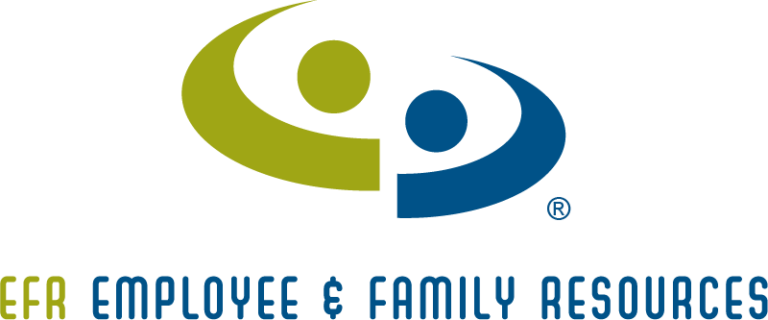There is an abundance of truth to the adage, “Health is wealth.” Financial wellness goes beyond a healthy bank account and impacts more than just your wallet. Financial wellness weaves into every aspect of your life, offering not just stability, but freedom. It’s about feeling secure by preparing for life’s surprises – from unexpected medical bills to urgent home repairs – and having the foresight to invest in the future, whether it’s your child’s education or a comfortable retirement. Ready to enhance your financial health? Discover why financial well-being is essential and get started on the path to financial freedom with five actionable steps!
Why Financial Well-Being is Key to a Fulfilling Life
The essence of financial well-being extends far beyond transactions; it profoundly influences your mental and physical health, the strength of your relationships, and your overall happiness. When financial challenges mount, they often lead to chronic stress, a culprit behind 80-90% of health issues, including;
- sleep loss
- anxiety
- headaches or migraines
- compromised immunity
- obesity
- digestive issues
- high blood pressure
- muscle tension
- heart arrhythmia
- depression
Financial Stress Fuels a Vicious Cycle
Financial stress can trigger a harmful cycle of deteriorating health, soaring medical expenses, and reliance on detrimental coping mechanisms like alcohol, smoking, and overeating, further escalating health problems and costs that worsen financial stress. Such issues can jeopardize employment, shake the foundation of relationships, and reduce life satisfaction. Moreover, it can sideline you from life’s joys, like celebrating milestones or enjoying well-deserved vacations. Recognizing the critical role of financial health is the first step towards breaking this cycle and reclaiming your life’s joy and satisfaction.
The State of Americans' Wallets: The Critical Role of Financial Wellness in Overall Health
A staggering 72% of adults in the U.S. feel the weight of financial stress.
When faced with an unexpected $1,000 expense, only 44% of Americans could manage without borrowing, highlighting a significant vulnerability in financial preparedness. Nearly one-third find themselves leaning on credit cards, loans, or the generosity of family and friends to bridge such gaps while a majority dip into their retirement savings prematurely.
Take Control, Not Just Stock: 5 Tips to Achieve Financial Wellness
Financial wellness is a crucial component of your overall well-being! Here are a few ways you can brush up on this area of your life:
1. Get a Snapshot of Your Financial Health
Understanding your financial well-being starts with a clear view of your finances. Look at your savings cushion, retirement nest egg, the balance between your debts and income, your ability to earn money, spending habits, and how you allocate your funds. These factors capture a snapshot of your financial well-being, empowering you with the knowledge to make life choices on your terms rather than being at the mercy of financial constraints.
2. Take Stock of Your Accounts
You should generally use a checking and savings account to manage day-to-day transactions. These accounts allow instant access, and most offer free online banking so you can easily track income and outgoing expenses. For long-term savings, look for interest-bearing accounts. They may provide instant access, but accounts that pay higher interest rates usually require notice of withdrawal.
3. Create a Budget
Living within your means is necessary to fulfill your financial goals and achieve financial wellness. Those who budget effectively are less likely to fall into debt or be caught off guard by expenses!
List Regular Income
To start your budget, make a list of your regular income. This includes salary and scheduled payments from other sources. Only include income you can guarantee!
List Essential Expenditures
Next, list your essential expenditures like rent or mortgage payments, utilities, health insurance, and commute costs.
Take Account of Non-Essentials
Then, take account of your non-essential expenses like leisure activities, subscriptions, and eating out.
Target Non-Essentials
Target your non-essentials list and look at what can be reduced or eliminated- do you really need eight streaming services?
Pay Attention to Essentials
Finally, look at your essentials- could you carpool to the office or work from home one day each week? You can save significantly by changing where you shop or what brands you buy!
Need help getting started? Check out the FTC’s Make a Budget Worksheet to see how much you spend in one month and plan for next month’s expenses!
4. Eliminate Bad Debt
Good debt is a positive investment in your future, like student loans, mortgages, or car loans. Bad debt has no long-term return, like borrowing money at high-interest rates to pay off other debt.
If you have money to spare after covering your essential expenses, consider using the snowball or avalanche method to pay off bad debt quickly.
Snowball Method
Using the snowball method, you first pay the minimum amount on all your debts. Then, you use leftover debts to pay the debt with the smallest balance. Once you’ve paid it off, move on to the next smallest balance, etc. This method gives you a series of small victories to boost morale, and as you pay off debt, you will have more money to pay off the next debt.
Avalanche Method
The avalanche method is similar to the snowball method but with one crucial difference. After making minimum payments on all your debts, you pay off the debt with the highest interest rate rather than the smallest balance, working through your debts until you pay off the one with the lowest interest rate.
The avalanche method means that you pay less in total than with the snowball, but it’s harder to achieve the quick wins that keep you motivated.
5. Build Up Your Savings
Once you have enough room in the budget, start saving a contingency fund to cover 3-6 months’ expenses in case of emergencies like a job layoff, medical expenses, or if an essential item breaks. Keep the fund separate from your day-to-day account to avoid the temptation to spend. Make sure you can access this fund quickly in case of an emergency!
Once you’ve built up your contingency fund, start saving for your future. Aim to save at least 10% of your income for retirement. If possible, invest through a retirement savings account to reduce the taxes you’ll pay and ensure you’re financially independent when you’re no longer working.
Financial Well-Being Doesn't Require Wealth
You don’t need to be extremely wealthy to achieve financial well-being. Beyond a modest point, more money only has a limited effect on happiness! Once your basic needs are satisfied, you quickly become accustomed to increased financial status, and it starts to feel ordinary or even inadequate.
The ultimate goal of financial wellness is a sense of security that contributes significantly to your overall well-being. It means you have the ability to take on new experiences, appreciate everyday pleasures, plan for the future, develop healthy relationships, and enjoy the freedom to make choices that are best for your life. Reaching financial wellness won’t happen overnight. It’s a process that continues over a lifetime, so rest assured the small steps you take today will amount to large strides over time!

Secure Your Financial Future with an Expert
If you have Employee Assistance Program (EAP) benefits through EFR, you can connect with a certified financial expert at no cost!
Whether you’re struggling with debt, dreaming of a sound retirement, or navigating the maze of college loans, no question is too big or small — if it’s about your money, we’re here to help!





